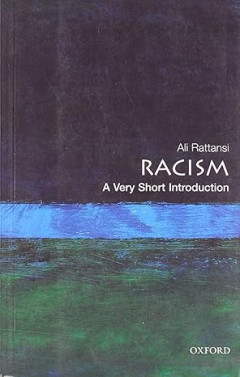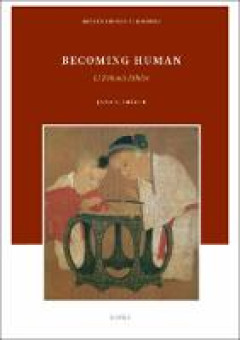Ditapis dengan

E-book Racism: A Very Short Introduction
From subtle discrimination in everyday life, to horrors like lynching in the Old South, cultural imperialism, and "ethnic cleansing", racism exists in many different forms, in almost every facet of society. Despite civil rights movements and other attempts at progress, racial prejudices and stereotypes remain deeply embedded in Western culture. Racism takes a frank and objective look at why the…
- Edisi
- -
- ISBN/ISSN
- 9780192805904
- Deskripsi Fisik
- 209 halaman
- Judul Seri
- -
- No. Panggil
- 170.01 RAT p

Ebook Privacy: A Very Short Introduction
It is widely recognized that our privacy is under threat. Electronic surveillance, biometrics, CCTV, ID cards, RFID codes, online security, encryption, the interception of email, the monitoring of employees--all raise fundamental questions about privacy. Legal expert Raymond Wacks here provides a compact introduction to this complex and controversial concept. He explores the tension between fre…
- Edisi
- -
- ISBN/ISSN
- 9780199556533
- Deskripsi Fisik
- 176 halaman
- Judul Seri
- -
- No. Panggil
- 170.01 WAC p

E-book Ars Electronica 2023 Festival for Art, Technology, and Society: Exhibi…
Towards a New Social Contract Ars Electronica 2023 is dedicated to the complex questions of truth and the concept of ownership in this digital age. In doing so, the festival navigates the central questions of our time. The focus is on how our perception of “authentic” and “original” is being transformed and whether truth can be owned, and how this relates to digitalization and the rapid…
- Edisi
- -
- ISBN/ISSN
- 9783775756020
- Deskripsi Fisik
- 434 halaman, ilus.
- Judul Seri
- -
- No. Panggil
- 170.0 STO a

E-book Ethics 101: From Altruism and Utilitarianism to Bioethics and Politica…
Ethics 101 offers an exciting look into the history of moral principles that dictate human behavior. Unlike traditional textbooks that overwhelm, this easy-to-read guide presents the key concepts of ethics in fun, straightforward lessons and exercises featuring only the most important facts, theories, and ideas. Ethics 101 includes unique, accessible elements such as: -Explanations of the ma…
- Edisi
- -
- ISBN/ISSN
- 9781507204931
- Deskripsi Fisik
- 256 halaman, ilus.
- Judul Seri
- -
- No. Panggil
- 170.0 BOO e
E-book Embracing Vulnerability : In Search of Communities with a Heart
Humans, animals, plants, rivers, air, earth, seas and mountains – robust, strong and resilient – are not indestructible. The survival of nature itself – of which we are a part – however breathtaking, dazzling, over-powering, awe-inspiring and often endearing it may be, cannot be taken for granted. We are threatened by multiple disruptions.I have long argued that we should not avoid life…
- Edisi
- -
- ISBN/ISSN
- 9789493296732
- Deskripsi Fisik
- 207 hlm
- Judul Seri
- -
- No. Panggil
- 205 ANB e

E-book The Global Wireless: Transnational Radiotelegraphy and Its Disruption …
The Global Wireless charts a history of wireless beginning in the 1910s, when it was used as a tool for global communication, and ending as it declined and slowly fell from view after World War I. Examining the political negotiations and international communication networks, the book demonstrates how a wireless technology had already spread around the globe a century ago and prompted a radical …
- Edisi
- -
- ISBN/ISSN
- 9783111202327
- Deskripsi Fisik
- 249 halaman, ilus.
- Judul Seri
- -
- No. Panggil
- 172.4 RIK t

E-book Becoming Human: Li Zehou's Ethics
The book Becoming Human: Li Zehou’s Ethics offers a critical introduction and in-depth analysis of Li Zehou’s moral philosophy and ethics. Li Zehou, who is one of the most influential contemporary Chinese philosophers, believes that ethics is the most important philosophical discipline. He aims to revive, modernize, develop, and complement Chinese traditional ethics through what he calls �…
- Edisi
- -
- ISBN/ISSN
- 9789004423664
- Deskripsi Fisik
- 347 halaman, ilus.
- Judul Seri
- -
- No. Panggil
- 170.0 ROS b
E-book Reasons and Persons
This book challenges, with several powerful arguments, some of our deepest beliefs about rationality, morality, and personal identity. The author claims that we have a false view of our own nature; that it is often rational to act against our own best interests; that most of us have moral views that are directly self-defeating; and that, when we consider future generations the conclusions will …
- Edisi
- -
- ISBN/ISSN
- 978019824908X
- Deskripsi Fisik
- 560 halaman
- Judul Seri
- -
- No. Panggil
- 170.0 PAR r
E-book If You’re So Ethical, Why Are You So Highly Paid? : Ethics, Inequali…
Why do some people appear to obtain a disproportionate share of income and wealth? The French economist Thomas Piketty, in his book Capital in the Twenty-First Century, frames the problem in a rather old-fashioned way as a tussle between capital and labour. His main thesis is that inequality is rising because the rate of return on capital, held disproportionately by the wealthy, exc…
- Edisi
- -
- ISBN/ISSN
- 9781909890954
- Deskripsi Fisik
- 198 hlm
- Judul Seri
- -
- No. Panggil
- 174.4 PEP i
E-book Jeremy Bentham and Australia : Convicts, utility and empire
Jeremy Bentham’s writings on Australia, new authoritative editions of which are now published in a volume entitled Panopticon versus New South Wales and other writings on Australia1 in The Collected Works of Jeremy Bentham, have had a profound and enduring influence across a number of fields. For instance, according to the historian John Gascoigne, s…
- Edisi
- -
- ISBN/ISSN
- 9781787358188
- Deskripsi Fisik
- 425 hlm
- Judul Seri
- -
- No. Panggil
- 170 ALL j
 Karya Umum
Karya Umum  Filsafat
Filsafat  Agama
Agama  Ilmu-ilmu Sosial
Ilmu-ilmu Sosial  Bahasa
Bahasa  Ilmu-ilmu Murni
Ilmu-ilmu Murni  Ilmu-ilmu Terapan
Ilmu-ilmu Terapan  Kesenian, Hiburan, dan Olahraga
Kesenian, Hiburan, dan Olahraga  Kesusastraan
Kesusastraan  Geografi dan Sejarah
Geografi dan Sejarah